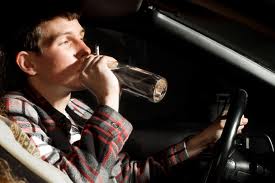One thing everyone can agree on is drunken driving is a serious problem. However, historically in Washington, how to battle this problem has generated various responses.
One common response that’s typically met with skepticism is the idea of implementing sobriety checkpoints – where police officers stop drivers to check for impairment even if these drivers have done nothing wrong to warrant the stop. Most people, including state Rep. Roger Goodman, D-Kirkland – a proponent of sobriety checkpoints – say sobriety checkpoints are against the current state constitution and would require an amendment.
But that hasn’t stopped the idea from being discussed before, and it didn’t stop the 2013 Washington Impaired Driving Work Group from strongly endorsing the idea in a lengthy report issued Monday. As Brian Rosenthal of the Seattle Times notes, “The most surprising aspect of the report may have been the high level of support for sobriety checkpoints, which exist in 38 states but are seen as violating the state constitution. … The checkpoints … were ranked as the fourth priority and supported by 82 percent of members.”
As recently as last year, in the aftermath of at least two high-profile DUI fatalities, the state legislature floated the idea of sobriety checkpoints. Ultimately, however, the DUI legislation that emerged from Olympia failed to include the checkpoints, with state Rep. Brad Klippert, R-Kennewick, telling the Times in March: “The civil libertarian crowd doesn’t like it.”
He’s right. Despite things like a 2005 study by the National Cooperative Highway Research Program that indicated sobriety checkpoints may reduce alcohol-related crashes by as much as 30 percent, many people remain skeptical. “I like them, but do not see how they survive state constitutional privacy protections,” Tom McBride, of the state association of prosecutors, told the Times.
Meanwhile, Doug Honig of the ACLU was even more blunt in March, saying of sobriety checkpoints: ““When you’re out and about, you shouldn’t be stopped when there’s no reason to think you’ve done anything wrong. You should be left alone by government.”
That’s usually where the discussion has ended in Washington. Will that change based on the recent report from the 2013 Washington Impaired Driving Work Group and the support of key lawmakers? Only time will tell …








